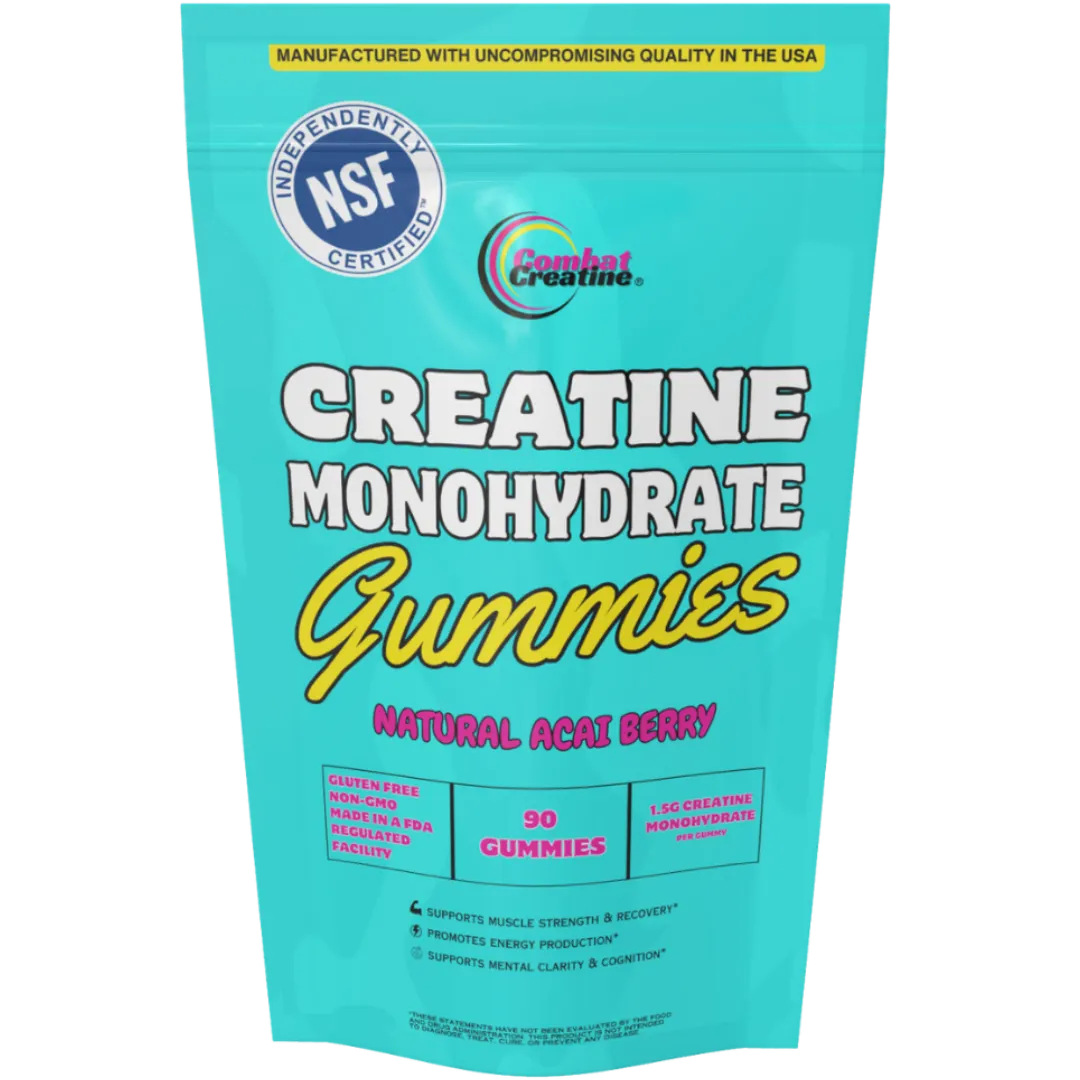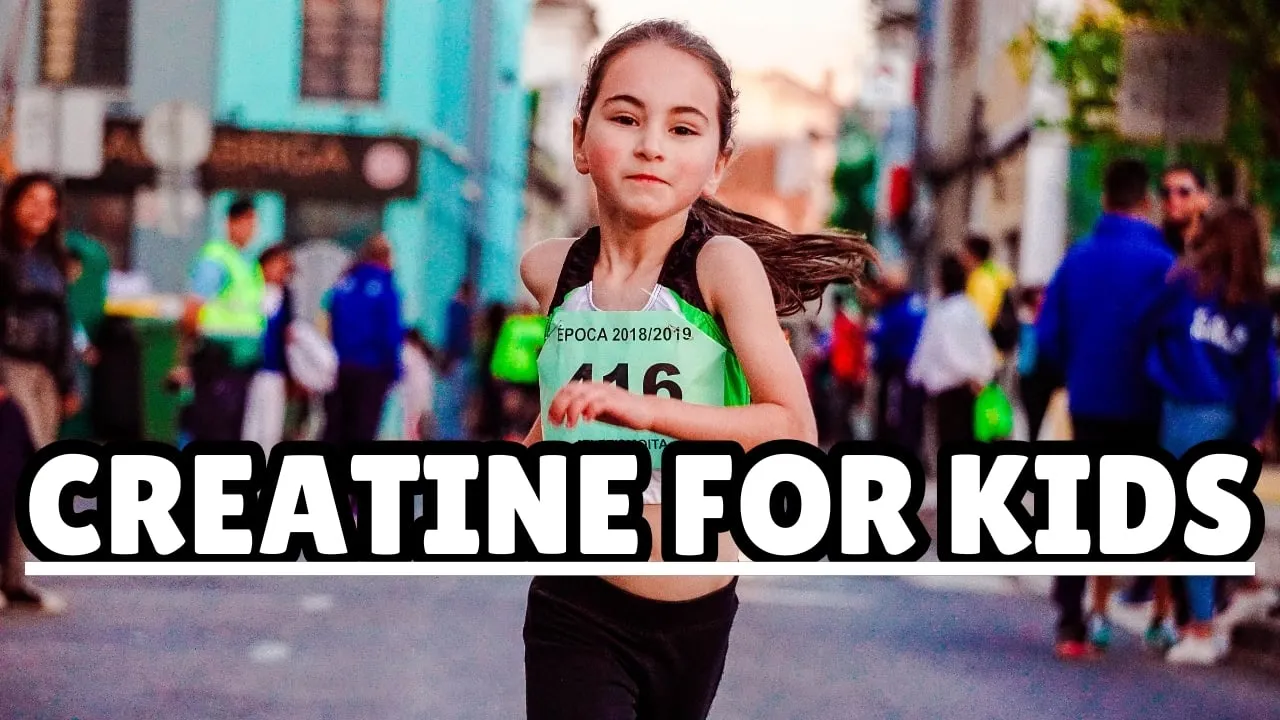Creatine for Kids: Should children use creatine supplements?
Is Creatine Safe for Kids? Understanding the Role of Creatine Supplementation in Children
Creatine is a popular supplement among athletes and fitness enthusiasts, but its use in children sparks curiosity and concern.
This article explores creatine supplementation in children, focusing on its safety, benefits, and proper usage.
If you're a parent, coach, or caregiver considering creatine for a child, this guide will provide clear, evidence-based information.

Outline
- What Is Creatine?
- Explanation of creatine and its natural occurrence in the body.
- Overview of creatine metabolism and dietary sources.
- Why Is Creatine Popular as a Supplement?
- Benefits of creatine supplementation for athletic performance and recovery.
- Common reasons for using creatine supplements.
- Is Creatine Safe for Kids?
- Review of research on creatine supplementation in children.
- Discussion on whether creatine is safe for kids.
- When Is Creatine Recommended for Children?
- Specific cases like cerebral creatine deficiency and other medical conditions.
- Potential benefits of creatine for young athletes.
- How Does Creatine Work in the Body?
- Explanation of creatine and phosphocreatine in energy production.
- Role of creatine in muscle performance and recovery.
- What Are the Benefits of Creatine for Children?
- Enhanced physical performance and recovery in young athletes.
- Potential cognitive benefits of creatine supplementation.
- What Are the Risks and Side Effects of Creatine?
- Overview of possible risks and side effects.
- Clarification on myths versus facts about creatine supplementation.
- What Is the Proper Dosage for Kids?
- Guidelines for safe dosages of creatine monohydrate for children.
- Discussion of acute creatine loading versus gradual supplementation.
- How to Choose the Right Creatine Supplement for Kids
- Importance of selecting pure creatine monohydrate supplements.
- Tips on reading labels and avoiding harmful additives.
- FAQs About Creatine Supplementation in Children
- Common questions answered, like “Is creatine safe for kids?” and “When should children take creatine?”

1. What Is Creatine?
Creatine is a naturally occurring compound found in muscles and the brain. It plays a crucial role in energy production, especially during high-intensity activities.
Creatine can be obtained through dietary sources like red meat and fish or synthesized in the body from amino acids.
2. Why Is Creatine Popular as a Supplement?
Creatine supplementation is widely used for improving athletic performance, increasing muscle strength, and aiding recovery.
Athletes, including young ones, take creatine to enhance their performance in sports that require bursts of energy, such as sprinting or weightlifting.
Explore different creatine types.

3. Is Creatine Safe for Kids?
Research on the use of creatine supplementation in children is limited but promising. Studies suggest that creatine is likely safe when used appropriately.
However, long-term effects are still under investigation. Parents should consult a healthcare provider before allowing their child to take creatine.
Debunk common myths about creatine.
4. When Is Creatine Recommended for Children?
Creatine supplementation may be recommended for medical conditions like cerebral creatine deficiency syndrome.
For young athletes, creatine can provide additional energy and enhance physical performance, particularly in sports requiring short, intense bursts of activity.

5. How Does Creatine Work in the Body?
Creatine works by replenishing ATP, the primary energy currency in cells. It supports energy production during high-intensity activities and helps muscles recover faster.
Creatine and phosphocreatine levels in muscles determine the availability of quick energy for explosive movements.
6. What Are the Benefits of Creatine for Children?
- Physical Performance: Creatine supplementation enhances muscular strength, power, and endurance in young athletes.
- Cognitive Benefits: Emerging research suggests that creatine may improve cognitive function, particularly under stress or sleep deprivation.

7. What Are the Risks and Side Effects of Creatine?
Creatine is generally safe, but potential side effects include dehydration, stomach upset, and muscle cramps.
However, these issues are rare and often linked to improper usage. Creatine supplementation does not impair kidney or liver function in healthy individuals.
8. What Is the Proper Dosage for Kids?
Children should follow strict dosage guidelines to avoid side effects. A common recommendation is 3–5 grams of creatine monohydrate daily.
Short-term creatine supplementation or acute creatine loading should be supervised by a professional.
9. How to Choose the Right Creatine Supplement for Kids
- Purity: Choose pure creatine monohydrate supplements without additives.
- Certification: Look for supplements tested by third-party organizations for quality and safety.
- Label Clarity: Ensure the supplement provides clear dosage instructions. Compare creatine supplements.

10. FAQs About Creatine Supplementation in Children
Q: Is creatine safe for kids? Yes, research suggests that creatine is safe for kids when used correctly. Consult a healthcare provider before starting supplementation.
Q: When should children take creatine? Creatine may be taken during periods of intense physical activity or for medical conditions requiring energy support.
Learn about creatine in special conditions.
Summary
- Creatine is a naturally occurring compound that supports energy production.
- Creatine supplementation may enhance physical performance and recovery in children.
- Studies suggest creatine is safe for kids when used appropriately.
- Common dosages range from 3–5 grams of creatine monohydrate daily.
- Consult a healthcare provider before starting creatine supplementation.
References
- Kreider, Richard B., et al. "Creatine Supplementation in Children and Adolescents." Journal of the International Society of Sports Nutrition, vol. 8, no. 1, 2011, pp. 1-5. PMC.
- Kerksick, Chad, et al. "Safety of Creatine Supplementation in Active Adolescents and Youth." Nutrients, vol. 10, no. 6, 2018, pp. 1-19. PMC.
- "Creatine Use Among Young Athletes." Pediatrics, vol. 108, no. 2, 2001, pp. 421-423. American Academy of Pediatrics, AAP Publications.
- Bhasin, Monica. "Creatine Supplements and the Youth Athlete." Pediatrics Nationwide, May 2023, Pediatrics Nationwide.
For More Training Advice + Diet and Lifestyle visit us Combat Creatine
PS: Make sure you check out the rest of our Creatine Guides:
Creatine
Creatine Supplements Ultimate Guide
Creatine Supplementation Side Effects
Best Creatine Monohydrate Gummies Review: Top 10 Best Creatine Gummies












